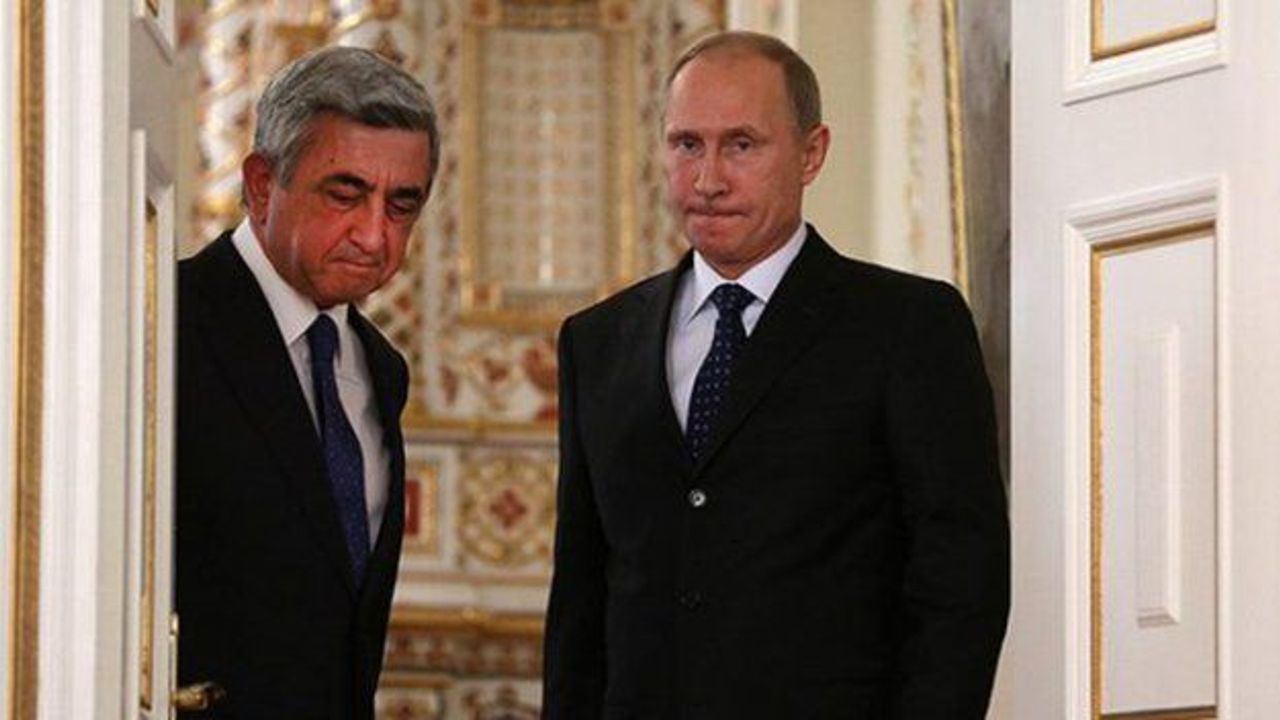Armenians let Putin down in Karabakh
After the partial withdrawal of Russian military forces from Syria, many experts began to wonder, who will be next?

Guessing and predicting on such topics is a thankless job, but you cannot forbid people from doing it. Various hotspots were named, including Karabakh. There is an opinion that the Kremlin has decided to gain a foothold on the post-Soviet area and to strengthen its position in the former Soviet republics. But we know that Moscow has very specific measures to strengthen its presence. For example, in the case of Georgia and Ukraine, it is expressed in the occupation of their territories by Russia, in the case of Armenia, in transforming it into a de facto Russian colony with all the resulting circumstances.
During the incident with the Russian Su -24 aircraft, which violated the airspace of Turkey, Azerbaijan supported Turkey's position on this issue. Next, the Azerbaijani authorities have begun gradual but steady rapprochement with the United States, while not hiding this fact.
Naturally, all this could not go unnoticed and unpunished by the Kremlin. Given that the Russian authorities are not distinguished by the special creativity, something trivial and familiar should have been expected. The Kremlin has decided to "punish" Azerbaijan for its overly independent policies, but this time, Putin has decided to entrust this task to his vassals, namely Armenia and the armed units of Karabakh Armenians, created by Armenia in the occupied territories of Azerbaijan.
Everything should have gone by the old, pre-developed scenario: Armenians organize provocations at the border and on the contact line of troops, killing innocent civilians of Azerbaijani border villages, and then, immediately, Moscow intervenes in the issue as a "peacemaker" and seizes the initiative, thereby demonstrating Baku, who the boss is.
A quite notable moment was chosen, when the President of Azerbaijan was not in the country and participated in the nuclear summit in Washington. But this time, the Kremlin owners miscalculated, their Armenian vassals failed them. In response to Armenian provocations along almost the entire front line, the Azerbaijani side took the necessary military measures. As a result, the much-vaunted "Armenian line of defense", that Armenians strengthened during 20 years, was broken through in several critical for the Armenian side points. Armenian army had to retreat, suffering losses. The Azerbaijani army recaptured a large number of the commanding heights and several Azerbaijani villages (or rather what was left of them). Almost immediately, the Armenian side hysterically rushed to ask for help from their Russian backers. Seeing the failure of their vassals, and trying to prevent the success of the Azerbaijani army, Russian Defense Minister Sergei Shoigu (although military action seem to officially happen between Azerbaijan and Armenia), Minister of Foreign Affairs Sergey Lavrov started ringing Baku. And finally, Putin himself intervened, calling on the parties to cease hostilities. Almost simultaneously with the Armenian setbacks at the front, Russian media, already experienced in Ukraine when it comes to lies, misinformation and rough propaganda, ganged up against Azerbaijan. Miraculously, the journalists from major Kremlin-controlled Russian media happened to be in Karabakh. All these facts allow us to understand who and why stands behind this provocation. I would like to emphasize that, the attempts of some Russian experts and political scientists to blame the United States or Turkey for the deterioration of the situation in Nagorno-Karabakh are just as absurd as Russian propaganda. Against the backdrop of its failure, Armenia's Foreign Ministry issued a hysterical statement, addressed to the international community to "stop the aggression of Azerbaijan." At the same time, the Armenian side, as always, forgot to emphasize that military operations are taking place on the territory of Azerbaijan, in which, for some reason, the armed forces of Armenia are present.
Ali Hajizade, political analyst, head of the project “The Great Middle East”







